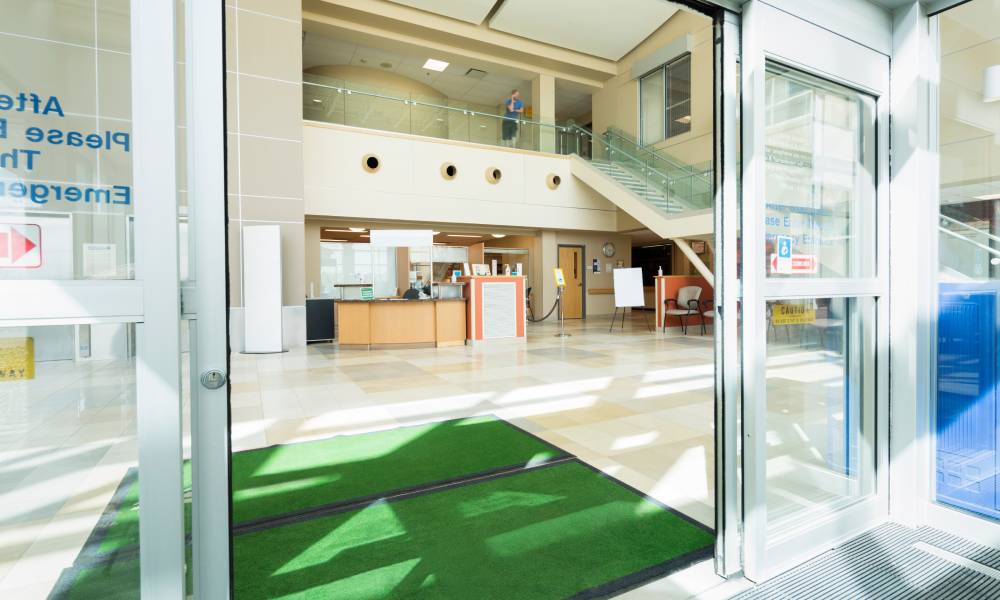A clean, safe environment in health-care facilities is imperative to safeguarding the health of patients, staff, and visitors. Utilizing the right tools and practices can ensure the highest standards of hygiene and safety.
Just what are the right tools? Leverage the following must-have items to keep health-care facilities safe and clean and elevate security and compliance.
1. Entrance Doormats for Safety and Cleanliness
You may not think much of the floormats you use in your facility, but strategically placing these items can help you stop germs in their tracks. Consider positioning mats right at the door to guarantee stakeholders’ visits to your worksite have a clean start.
What roles do doormats play in facility maintenance and cleanliness? These mats capture dirt, moisture, and other debris from shoes before they can enter the workplace. Doormats reduce cleaning costs and decrease the likelihood of trips, slips, and falls caused by wet or dirty floors.
2. Dedicated Shoe Covers Station
In addition to durable entrance mats, try setting up a shoe cover station near entry points for staff and visitors. Disposable shoe covers work in tandem with doormats and act as a barrier, preventing the tracking of outdoor dirt and contaminants throughout your facility. Providing easy access to these covers and clear signage promotes consistent usage.
3. Touchless Fixtures and Tools
Encourage a more hygienic environment with touchless technology. Automatic faucets, soap dispensers, and trash cans in restrooms and communal areas limit the need for physical contact, reducing germ transfer. Adding touchless door openers to high-traffic areas can take it a step further by completely removing the need to touch surfaces that hundreds of people would ordinarily touch daily.
4. Color-Coded Cleaning Systems
Color-coded cleaning supplies are must-have items to keep health-care facilities safe and clean. With a color-coded cleaning system, you can avoid cross-contamination in your facility. Consider adhering to the following designation method:
- Red equipment for restroom cleaning
- Blue for common areas
- Green for kitchen or food prep spaces
This system ensures that tools used for high-risk cleaning tasks, such as restroom sanitation, are never unknowingly used elsewhere. Make this categorization part of your team’s cleaning routine by providing clear training and signage.
5. Air-Purifying Plants
Clean air is critical in patient recovery and staff health. Consider incorporating air-purifying plants into your office, such as spider plants, peace lilies, or Boston ferns.
These plants support health and safety as they effectively reduce airborne toxins. Plus, they add a comforting, natural aesthetic to your space, making the environment feel more inviting and less clinical.
Maintaining a Safer Health-Care Office
Adopting creative cleaning and safety practices allows you to develop a healthier worksite for patients and employees. These small, thoughtful adjustments can reduce risks while strengthening your facility’s reputation as a trusted, safe space.







